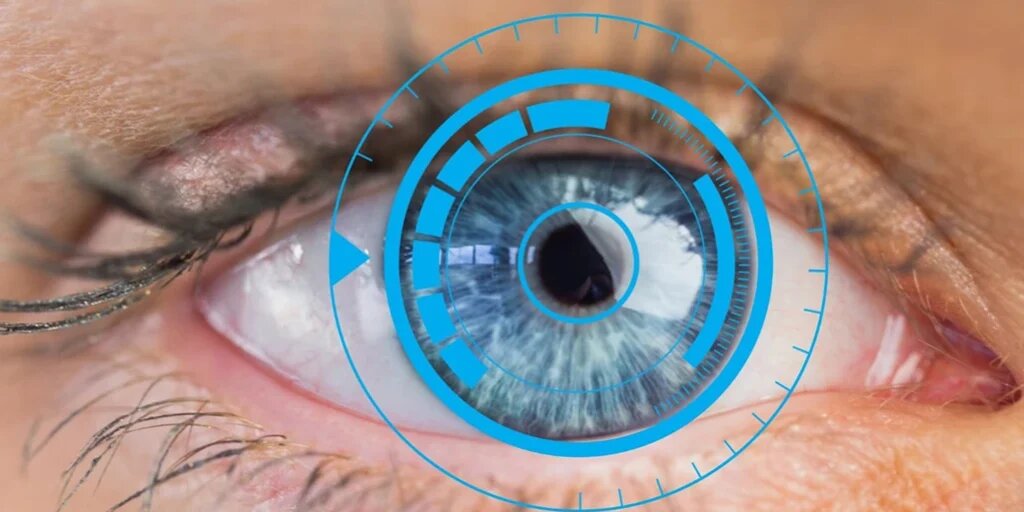Understanding the Macula and Its Role in Vision
The macula is a small but crucial part of the retina, responsible for sharp central vision. It allows you to read, recognize faces, and see fine details. When a macular hole develops, it disrupts this clarity, leading to blurry or distorted vision. Over time, if left untreated, it can significantly impact daily activities.
A macular hole forms when the central part of the retina thins and breaks apart, creating an opening. This condition is different from macular degeneration but still requires timely medical attention to prevent permanent vision loss.
What Causes a Macular Hole?
Several factors contribute to the development of a macular hole, most of which are related to the natural aging process or underlying eye conditions. Understanding these causes can help individuals take preventive steps and seek timely treatment.
1. Aging and Vitreous Shrinkage
As people age, the vitreous—the gel-like substance inside the eye—gradually shrinks and pulls away from the retina. In most cases, this process, known as posterior vitreous detachment (PVD), occurs without any complications. However, in some cases, the vitreous remains partially attached to the macula, exerting traction. This prolonged tugging can cause a macular hole to form.
2. Eye Trauma and Injuries
Blunt force trauma or a direct injury to the eye can cause retinal damage, increasing the risk of a macular hole. Sudden impact can disrupt the structure of the macula, leading to a tear or hole formation. People engaged in high-contact sports or activities with a risk of eye injury should take protective measures.
3. High Myopia (Severe Nearsightedness)
Individuals with high myopia have elongated eyeballs, which places additional strain on the retina. This stretching weakens the retinal tissue, making it more susceptible to developing macular holes. People with extreme nearsightedness should undergo regular eye check-ups to monitor retinal health.
4. Diabetic Eye Disease
Diabetes can cause several eye complications, including macular holes. Diabetic retinopathy leads to weakened blood vessels, swelling, and retinal damage. These changes can contribute to the formation of a macular hole, especially if fluid accumulation increases traction on the macula.
5. Epiretinal Membrane Formation
An epiretinal membrane is a thin layer of scar tissue that forms on the surface of the retina. As this membrane contracts, it pulls on the macula, leading to distortion and potential hole formation. This condition is more common in older adults and can sometimes be treated before a hole develops.
6. Retinal Detachment or Previous Eye Surgeries
A history of retinal detachment or surgical procedures like cataract removal may increase the chances of macular hole development. Any intervention that affects the vitreous can alter the natural dynamics of the eye, sometimes leading to unexpected retinal changes.
7. Genetic Predisposition
While macular holes are not directly inherited, a family history of retinal diseases or conditions like macular degeneration may increase susceptibility. People with such a background should schedule routine eye exams to detect early signs of retinal issues.
Symptoms of a Macular Hole
Recognizing the symptoms early can help in seeking prompt medical care. Common signs include:
- Blurry or distorted central vision
- Difficulty reading or seeing fine details
- A dark or missing spot in the center of vision
- Straight lines appearing wavy or bent
These symptoms often start subtly and worsen over time. If any of these occur, consulting an eye specialist immediately is essential.
Treatment Options: How Macular Hole Surgery Can Help
Macular Hole Surgery, also known as vitrectomy, is the most effective treatment for closing a macular hole and restoring vision. The procedure involves removing the vitreous gel to relieve traction on the retina. A special gas bubble is then inserted to help the macula heal and reattach properly.
Post-Surgery Care and Recovery
- Patients may need to maintain a face-down position for several days to keep the gas bubble in place.
- Vision gradually improves over a few weeks to months as the macula heals.
- Follow-up visits ensure proper healing and monitor for any complications.
Timely intervention significantly increases the success rate, with many patients regaining good central vision.
Finding the Right Eye Hospital for Macular Hole Treatment
Choosing a specialized eye hospital is crucial for successful macular hole treatment. A super-specialty eye hospital like Maxi Vision offers advanced diagnostic tools, expert retinal specialists, and state-of-the-art surgical techniques. Patients receive personalized care, ensuring the best possible outcome for vision restoration.
Conclusion
A macular hole can disrupt daily life, but early diagnosis and timely Macular Hole Surgery can prevent severe vision loss. Aging, high myopia, trauma, and diabetic complications are key contributors to this condition. Regular eye check-ups and seeking specialized care at a trusted eye hospital can make all the difference in preserving vision.
Maxi Vision, a leading super-specialty eye hospital, provides expert care for macular holes and other retinal disorders. With cutting-edge technology and compassionate specialists, it ensures the highest standards of eye care for every patient. If you or a loved one experience vision changes, consult an eye expert today for a comprehensive evaluation.





Comments